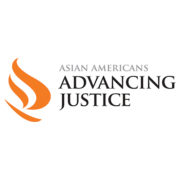“The document is full recognition that the individuals signing the document are
the legal parents of the child.”
IN the last column, we provided an overview of child custody and support in the context of divorce cases wherein parentage of the children born during the marriage is typically assumed.
For unmarried parents, the procedures for obtaining custody and visitation orders depends on whether parentage has been established. Keep in mind that the information below is not a substitute for legal advice. For advice about your individual situation, you should consult with an experienced, trustworthy family law attorney.
There are two ways to establish parentage for unmarried parents. Both parents may sign a Voluntary Declaration of Paternity which often happens in the hospital, right after a child’s birth. The document is full recognition that the individuals signing the document are the legal parents of the child. The other way is to file a parentage action in court, which can address and resolve issues of child custody, child support, and child visitation. Parentage cases do not address issues of property, debt, spousal support between the parties because there is no marital relationship.
If parentage has already been established through the Voluntary Declaration of Paternity, either parent can file for a petition for custody and support in court. In both types of court cases, the judge can make custody, visitation, and support orders.
However, the final order in a Petition case would not include a judgment that confirms the legal parents. If either party is denying parentage, then a parentage action is the appropriate vehicle for a judge to make a formal determination of whether a party is the actual parent of a child in the paternity case.
There are specific documents that you need to file with the court to start a parentage action or to file a petition for custody and support. There is also a filing fee, but if you are low-income you may qualify for a fee waiver. That requires filing additional documents to show your income situation.
Once you file the initial documents, those documents need to be served to the other parent in person, by a third party (not you), who is over 18 years old. If the other parent is in another state or out of the country, the rules for legally “serving” the papers are different.
Please note that every case is different and judges often have significant discretion when deciding issues of parentage and custody. While an experienced attorney can help you prepare and present your case as best as possible, there is no way to predict or guarantee any outcome. If you have questions about your situation or need legal assistance, please contact Advancing Justice – L.A’s Tagalog helpline at 855-300-2552.
* * *
Asian Americans Advancing Justice – Los Angeles (Advancing Justice – LA) is the nation’s largest legal and civil rights organization for Asian Americans, Native Hawaiians, and Pacific Islanders (NHPI). Founded in 1983 as the Asian Pacific American Legal Center, Advancing Justice – LA serves more than 15,000 individuals and organizations every year. Through direct services, impact litigation, policy advocacy, leadership development, and capacity building, Advancing Justice – LA focuses on the most vulnerable members of Asian American and NHPI communities while also building a strong voice for civil rights and social justice. For more information, please visit https://www.advancingjustice-la.org/.






